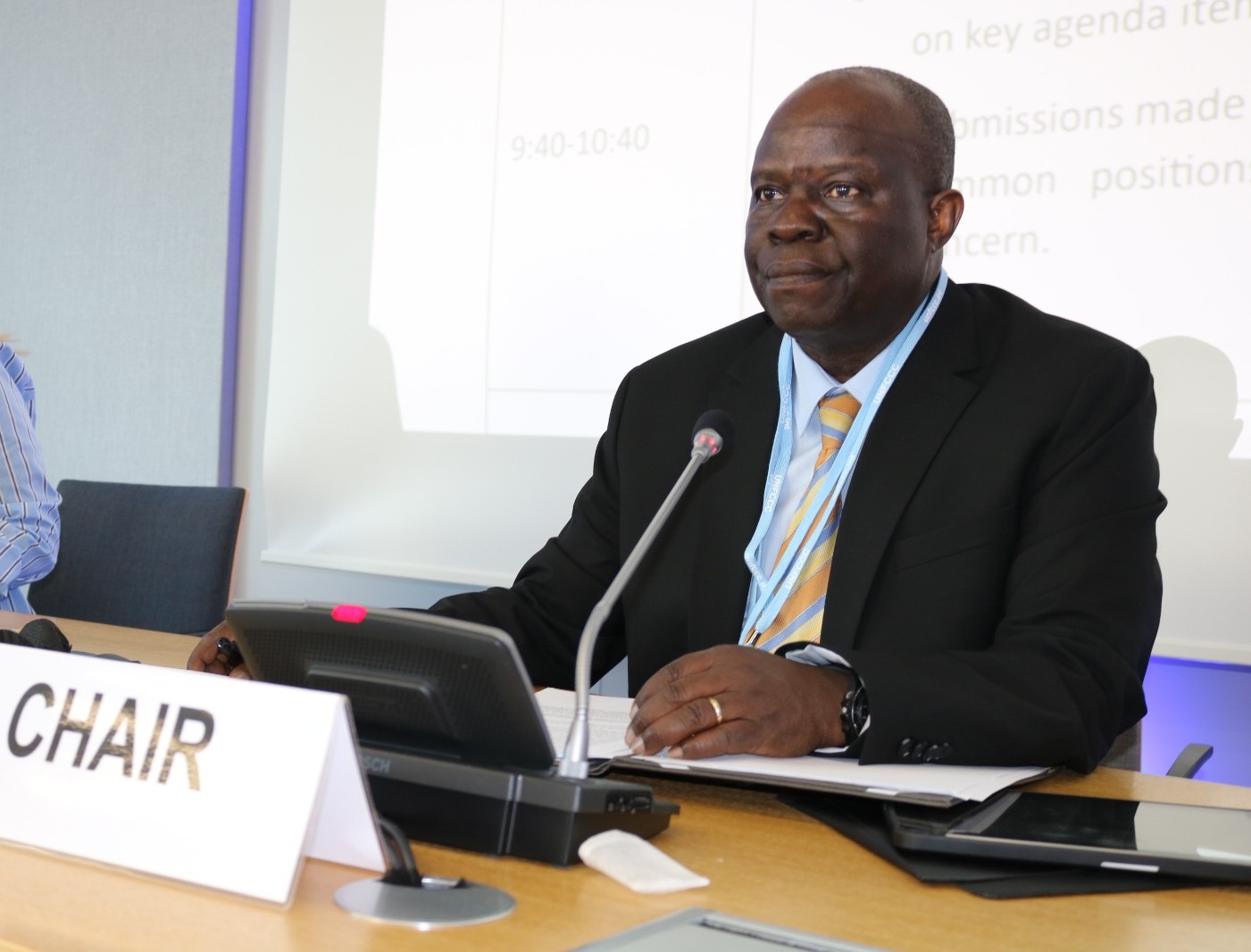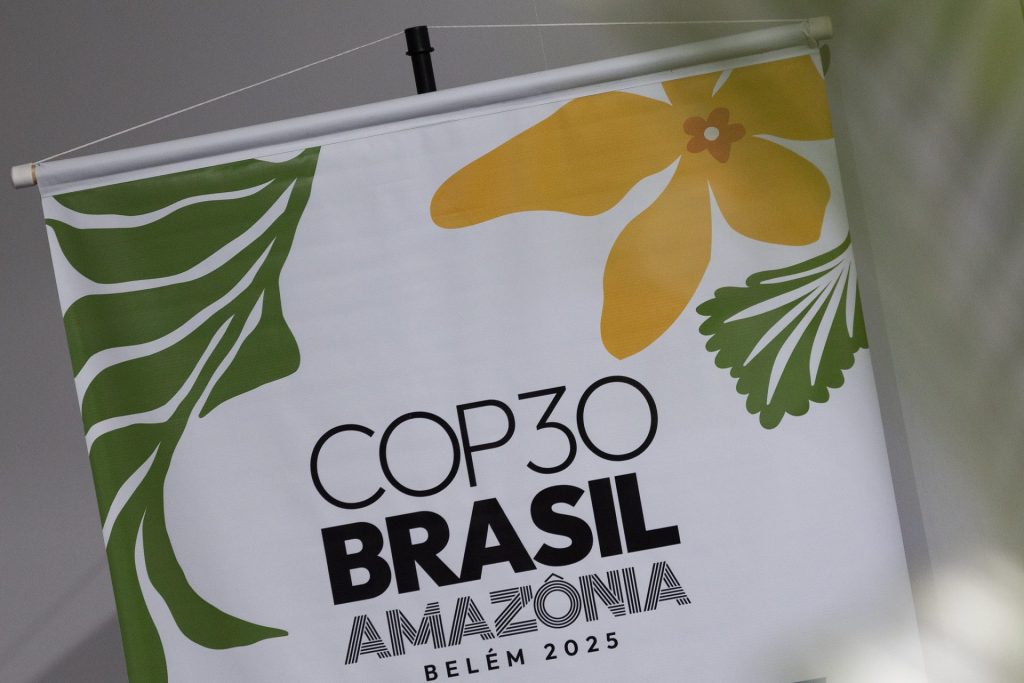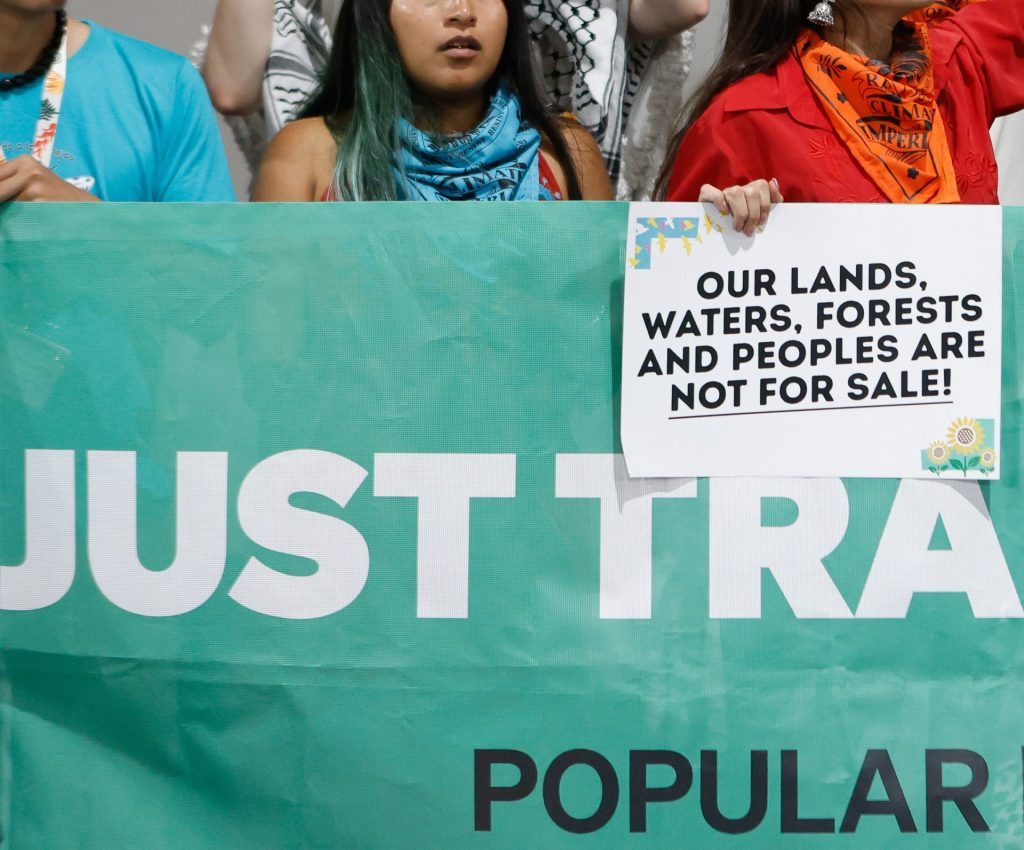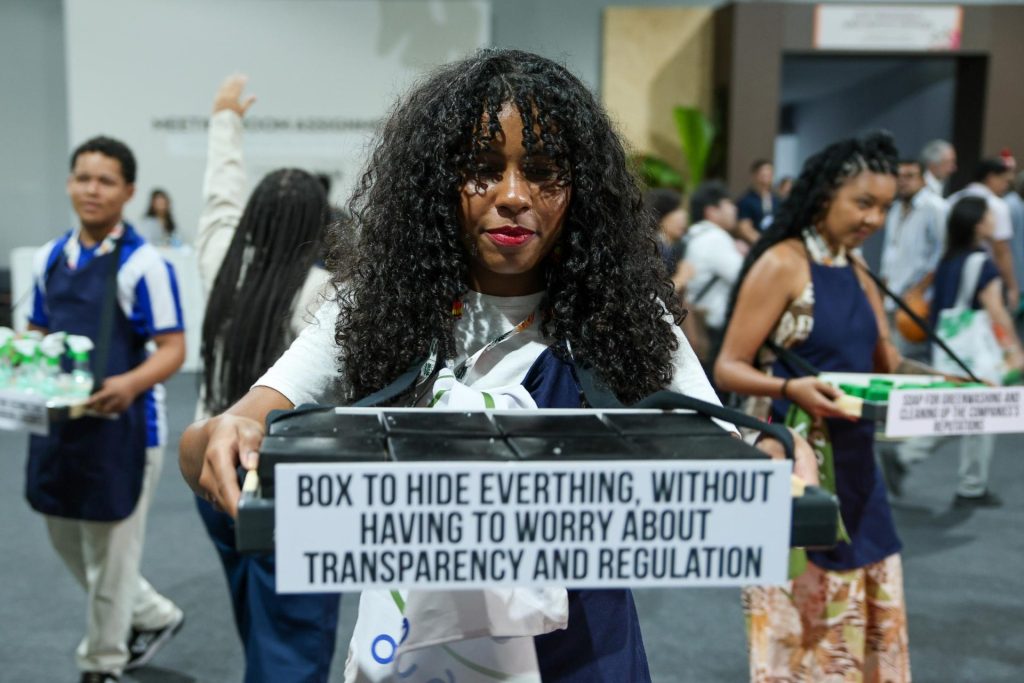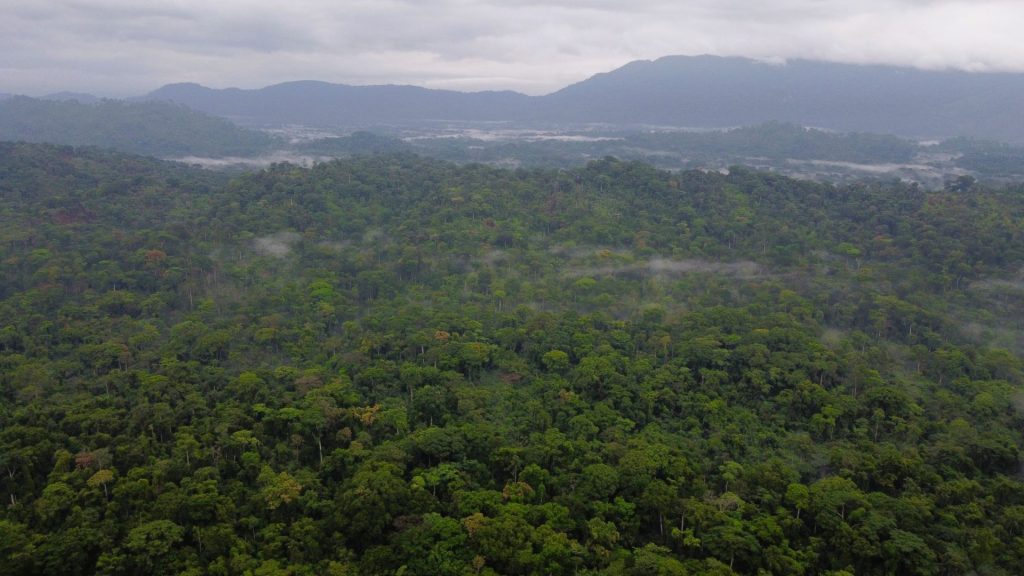We discussed the importance of adaptation and finance, the just transition, equity, climate and health, youth involvement in climate negotiations, and a host of other issues that the group is prioritising and spearheading on behalf of the continent. Our conversation has been edited for clarity and length.
How Important Are the Bonn Climate Talks in Light of the Overall Negotiation Landscape?
It is not necessarily the Bonn meetings themselves, but rather what happens after Bonn that matters. The intersessionals in Bonn frame the issues, so that when Parties attend the Conference of the Parties (COP), they have clarity, or at least an understanding of the positions of other negotiating blocs. In this sense, Bonn is a stepping stone. It enables us to speak with one voice, as Africa.
The Group Has a Number of Objectives This Year. Tell Us More About How Adaptation Features Within These?
Some of the general priorities of the continent do not come directly from COP29 in Baku, but rather, they there are decisions or areas of engagement which have a long history; areas which still need to be concluded, and areas which we still need to embed in the discussions.
One that is very important is the Global Goal on Adaptation. For the continent, adaptation is critically important because in the absence of reduced emissions, we will be the most impacted. We also want to have a global conversation on adaptation.
We have already agreed on some of the goals we want to achieve for adaptation, be it resilience, be it reducing loss and damage, or be it addressing integration within our national priorities. This year, we are looking at the possible indicators to measure these goals, which can demonstrate to the global community that adaptation is taken as seriously as mitigation.
We already have a large body of work which can be used for the indicators. I must hasten to mention that some of the indicators have been published, and they are now with the UNFCCC Secretariat. However, we are frustrated with the way the indicators are being framed. Our understanding was that the indicators must be seen in the context of the need to address vulnerability, increase resilience, and increase finance. Therefore, we are looking to see indicators that demonstrate how the international community has been supporting adaptation, whether it is capacity building, finance, or technology. The current versions have not met our expectations, and negotiators have been working on this issue at a recent meeting in South Africa.
What we need are simple, clear indicators that send a message that ensures that adaptation is addressed at the global level, and that it is adequately supported. We should be looking at how indicators can inform policy makers, academia, technicians, Multilateral Development Banks (MDBs) and other financing institutions, technological institutions, and capacity building institutions. My colleagues are working hard to ensure that the indicators we ultimately adopt or agree reflect the needs of Africa in this context.
You Mentioned in an Earlier Statement That the AGN Was Seeking Clarity on the New Collective Quantified Goal on Climate Finance (NCQG) and the Baku to Belém Roadmap. What Aspects Specifically Is the AGN Looking to Clarify, and How Do You See This Developing at SB62?
Finance for Africa is critically important. The discussions on the NCQG have been ongoing since the last two COPs, and we now want to see this translated into real support. In Baku, we were able to agree to US$300 billion, moving from the previous US$ 100 billion goal. However, in light of the actual needs of developing countries, we were aiming for US$3 trillion. Ultimately, through negotiations, we settled for US$1.3 trillion in Baku, which we thought would be achievable. These are not mere numbers, they are embedded in facts, in our NDCs, and in many assessments which have been conducted. I am a member of the Standing Committee on Finance. We had numerous discussions on the NCQG, and the US$1.3 trillion was proposed as a minimum to see whether those resources could, in part, be generated from the private sector. But as you know, we were unable to achieve that. Accordingly, we want to see whether the agreement in Baku to unlock US$1.3 trillion by 2035, will take shape this year. We want to see the Roadmap providing clarity how much will be achieved by 2035 and how, particularly through various sources. Our worry is that in unlocking the US$1.3 trillion, there will be an increased debt burden for the continent.
We have seen the tendency for climate finance to move away from what was agreed under the Convention and under the Paris Agreement, namely; that developed countries, should take the lead in the form of public finance. We have agreed to bring in the private sector and MDBs. However, they are now locking many African countries into unsustainable debt burdens. In the past three to five years, for example, the debt burden has increased by 26.3% in Africa, this is unacceptable. We need a Roadmap that will enhance finance without locking African and other developing countries into a greater debt burden. We are looking to see more focused discussions on how resources will be provided to help countries address resilience, loss and damage, and the impacts we are facing, without generating new debt related challenges.
We are also critically focusing on accessibility. It takes five years to access the resources from the Green Climate Fund (GCF), and if that continues the urgent needs of Africa will never be addressed. If resources are only received after five years, land and lives will have already been lost to sea level rise, as well as lost opportunities for the community. The Baku to Belém Roadmap also needs to provide clarity on this aspect.
The COP30 Presidency Has Highlighted That the Just Transition Would Also Be a Priority at Bonn. What Is Your View on This Aspect?
The Just Transition Work Programme, is critically important for the region and another priority for us in Bonn, COP30 and beyond. We all agree with the concept of a just transition, and Africa is ready to participate in it. In fact, we are participating already, because if you look at the so-called drivers of the just transition, much of it comes from Africa. Most of the low carbon technologies behind the transition are driven by the use of natural resources or the natural wealth of Africa, with many of the critical minerals needed for these new technologies found on the continent. A conversation about a just transition, requires a consideration of how it is just for the continent which provides the solution to the challenge. And this is one area where we also need to see how our own natural wealth: critical minerals as well renewable sources of energy from natural wealth, can help the continent to address climate change
Another area of importance for the continent is the need to ensure that it is not left behind during the just transition. We need to focus on energy access; we cannot talk about a just transition where 680 million African people lack energy access. What are they transitioning to? Where are they transitioning from? In the discussions, we need to ensure that energy access becomes part of the just transition. This is where the declaration on Mission 300, which talks about ensuring that 300 million people in Africa have access to electricity by 2030, becomes critical. Both the World Bank and African Development Bank, have supported it, and it is being championed by the United Republic of Tanzania. At the Mission 300 summit, 22 Heads of State also underscored how we need to look at a just transition in the context of tax evasion and illicit financial flows that are annually recorded and reported from the continent.
Another issue dear to the continent is clean cooking. You cannot talk about a just transition when there are still 900 Africans that lack access to clean cooking. These are the priorities that the African Union endorsed for us as negotiators at its last meeting in February 2025, and are what we want to see embedded in the just transition dialogues within the UNFCCC processes.
NDC Updates Are a Particularly Important Subject This Year, What Has the General African Experience Been in the Update Process, and Are Needs Being Met?
Included within the various negotiation priorities discussed earlier, are NDC updates. The third round of NDCs (NDCs 3), are critically important for the continent. The question is, how do we ensure that we do not have another set of reports going to the shelves? The implementation of the first and second round of NDCs was inadequate. Resources were not given. We are now expected to, and are in the process of completing our NDCs 3, which is a challenge. We need to do it before COP30. What we need to see are practical NDCs 3, ones which are implementable. This is one area which we intend to address in Bonn, and beyond.
We also have a host of other priorities, including loss and damage, where we need to ensure that resources trickle down because the finance mechanism is now in place. With respect to mitigation, we need to ensure that it is linked to the continent’s priorities, as discussed earlier. We are also looking to see the implementation of National Adaptation Plans, unlocked.
The Same Themes of Justice and Equity Have Come up Frequently in the Negotiations, for Example in Technology Transfer, the NCQG, Article 2(1)(C) and in Loss and Damage. It Has Been a Longstanding Issue for Decades but Seems to Have Reached a Crescendo in Recent Years. Is This a Common Theme You Are Seeing in the Discussions and Why?
The question of justice and equity remains central in the climate negotiations, and it has been so for some time. We did not invent the notion of common but differentiated responsibilities (CBDR), justice, and equity. They come from the Paris Agreement. But it has been a battle. The struggle is how this has been translated and interpreted by our colleagues. At some point, we had even to change the principle of CBDR, to include “respective capabilities”. This was frustrating because the convention was very clear about the principle being embedded in historical responsibilities.
Going forward, we have been trying to have the special circumstances of Africa recognised, in terms of equity and CBDR. We have a long history of a lack of support for our development, as well as our geographical vulnerability. This is an agenda we will continue to push, and it aligns with the African Union’s theme of the year, which is to address the challenges of the African people and people of African descent. It is not just about historical justice. Today climate change is impacting people with the least resources, access to energy, and education options, who are mostly in Africa.
There are also structural challenges, which hinder our capacity to absorb resources. African countries are seen as less favourable investment destinations, especially for investments in resilience infrastructure, mitigation and adaptation. This makes it impossible to respond to climate change. We are also unable to grow because our GDPs do not offer that space. Following this combination of factors, it is important to recognise the special circumstances of Africa, which will also be part of the just and equitable participation in the climate change discourse.
What Message Are You Taking to Bonn and Beyond Born on Climate Change and Health, Mindful of the Impacts It Is Already Having on the Continent?
We are seeing health being impacted in multiple ways, due to floods, a lack of water, increased temperatures and ecosystem shifts. We are also seeing malaria and dengue fever in parts of the continent that have never had them before. This is one area we need to be bold and candid about, to ensure that health is part of our negotiations. The new African director of health at the World Health Organisation (WHO) is also Tanzanian, and we have I have already been in touch with him over this matter and as Chair of the AGN, I have offered my readiness to work with his office and other relevant stakeholders to ensure that health is part of the negotiations. So, yes, we have now a Lead Coordinator on Climate and Health.
I must hasten to mention that this is not the only area I am expanding to, I have on also focused on gender, as well as inclusion of youths in the negotiations, because by 2030, approximately 70 percent of Africans will be youth.
Thank you for your time Chair, we are grateful for your insights and guidance and we wish the AGN well ahead of SB62.

